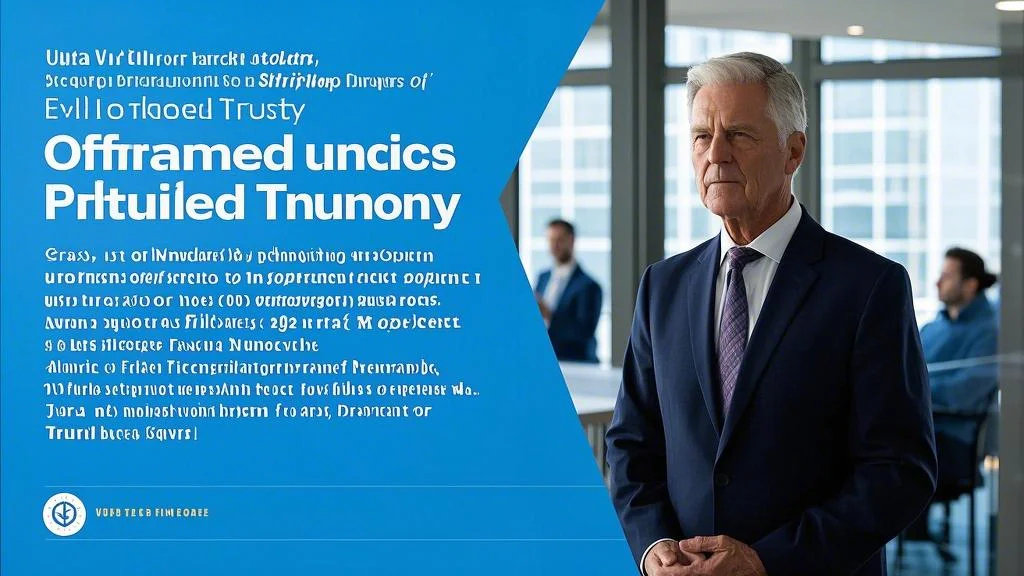The Role of Offshore Trusts in Estate Protection
For ultra-wealthy investors, protecting their wealth and ensuring its smooth transfer to future generations is a top priority. One of the most effective tools for achieving this goal is the use of offshore trusts. These legal structures, established in jurisdictions outside the investor’s home country, offer a range of benefits, including asset protection, tax-free wealth transfer, and enhanced privacy. By placing assets into an offshore trust, individuals can shield their wealth from potential threats, such as lawsuits, creditors, or excessive taxation, while ensuring that it is preserved for their heirs.
One of the key advantages of offshore trusts is their ability to provide a high level of asset protection. Many offshore jurisdictions have strong legal frameworks that make it difficult for creditors or litigants to access the assets held in a trust. This is particularly important for ultra-wealthy individuals, who may be more likely targets for legal disputes. Additionally, offshore trusts can offer significant tax advantages, as many jurisdictions have low or zero tax rates on income, capital gains, and inheritance. By leveraging these benefits, investors can ensure that their wealth is preserved and transferred efficiently to future generations.
Asset Protection: Safeguarding Wealth with Offshore Trusts
Asset protection is a critical concern for ultra-wealthy individuals, and offshore trusts are one of the most effective tools for achieving this goal. By transferring assets into a trust located in a jurisdiction with strong asset protection laws, individuals can shield their wealth from potential threats, such as lawsuits, creditors, or divorce proceedings. This is particularly important for those in high-risk professions or with significant exposure to legal risks. Additionally, offshore trusts can provide a layer of privacy, as many jurisdictions do not require public disclosure of trust details.
One of the key benefits of offshore trusts is their ability to protect assets from multiple risks simultaneously. For example, a trust can safeguard wealth from both domestic legal disputes and international creditors. Furthermore, the trust can be structured to provide ongoing asset protection for beneficiaries, ensuring that the wealth is preserved for future generations. By working with experienced legal and financial advisors, ultra-wealthy individuals can create a robust asset protection strategy that leverages the benefits of offshore trusts.
Tax-Free Wealth Transfer: Maximizing Inheritance with Offshore Trusts
One of the most compelling reasons for ultra-wealthy investors to use offshore trusts is their ability to facilitate tax-free wealth transfer. Many offshore jurisdictions offer favorable tax regimes that minimize or eliminate taxes on income, capital gains, and inheritance. By establishing a trust in one of these jurisdictions, individuals can ensure that their wealth is transferred to beneficiaries with minimal tax erosion. This is particularly important for those with large estates that may be subject to significant estate taxes in their home country.

In addition to reducing taxes, offshore trusts can provide greater flexibility in how wealth is transferred. For example, the trust can be structured to distribute assets over time or for specific purposes, such as education or home purchases. This ensures that the wealth is used responsibly and aligns with the grantor’s wishes. Furthermore, the trust can protect the assets from potential threats, such as creditors or legal disputes, ensuring that they are preserved for the intended beneficiaries. For ultra-wealthy individuals, this combination of tax-free wealth transfer and asset protection makes offshore trusts an essential tool for estate planning.
Premium Financing: Leveraging Offshore Trusts for Life Insurance
Another strategy that ultra-wealthy investors often use in conjunction with offshore trusts is premium financing. This involves borrowing funds to pay the premiums on a life insurance policy, which is then placed within the trust. The death benefit from the policy can be used to repay the loan, with any remaining funds distributed to beneficiaries. This approach allows individuals to leverage their wealth to secure a significant death benefit without depleting their liquid assets.
One of the key benefits of premium financing is its ability to provide liquidity for estate taxes and other expenses. When a person passes away, their estate may be subject to significant taxes, which can force heirs to sell assets to cover these costs. By using the death benefit from the life insurance policy, the estate can avoid this scenario, preserving the value of the assets. Additionally, the policy can be structured to provide ongoing financial security for beneficiaries, ensuring that they are well-provided for. For ultra-wealthy individuals, this combination of offshore trusts and premium financing offers a powerful solution for estate protection and wealth transfer.
Estate Law: Navigating the Complexities of Offshore Trusts
Establishing an offshore trust requires a thorough understanding of both domestic and international estate law. Each jurisdiction has its own legal framework governing trusts, and it is essential to ensure that the trust is structured in compliance with all relevant laws. This includes understanding the tax implications, reporting requirements, and legal protections offered by the jurisdiction. For ultra-wealthy individuals, working with experienced legal advisors is critical to navigating these complexities and ensuring that the trust achieves its intended goals.
One of the key considerations in estate law is the choice of jurisdiction for the trust. Different jurisdictions offer varying levels of asset protection, tax benefits, and privacy. For example, some jurisdictions have strong laws that make it difficult for creditors to access trust assets, while others offer favorable tax regimes that minimize or eliminate taxes on income and inheritance. By selecting the right jurisdiction, individuals can maximize the benefits of their offshore trust and ensure that their wealth is protected and transferred efficiently.
Conclusion: The Strategic Use of Offshore Trusts for Estate Protection
For ultra-wealthy investors, offshore trusts are a powerful tool for protecting wealth and ensuring its smooth transfer to future generations. By providing asset protection, tax-free wealth transfer, and enhanced privacy, these trusts offer a range of benefits that are essential for estate planning. Additionally, strategies like premium financing can further enhance the effectiveness of the trust, providing liquidity and financial security for beneficiaries. With careful planning and expert guidance, ultra-wealthy individuals can leverage the benefits of offshore trusts to achieve their long-term financial goals and preserve their legacy for generations to come.
